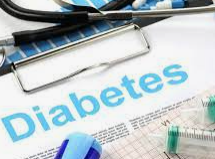Diabetes: What you should know? by Jody taylor

Diabetes: What you should know? by Jody taylor Why would we willingly put ourselves at risk for heart-attack, stroke, blindness, kidney- failure and nerve weakness. But if you are one of the twenty million Americans who are afflicted with diabetes, you have already increased your risk for these life threatening diseases. Diabetes occurs when the blood sugar (glucose) rises to an alarming high, as our body fails to control insulin which is essential to maintain a healthy sugar-level. There are two types of diabetes - type 1 and type 2. Type 1 diabetes is commonly seen among children and young adults. People suffering from type 1 diabetes require a daily insulin injection to survive. Type 2 diabetes is a terrifying killer that affects 95 % of the total diabetes cases in America. The symptoms of diabetes are very tough to recognize. That's why most of the people find it when they had already crossed into an advanced level of diabetes. It is a silent killer that begins wit...



